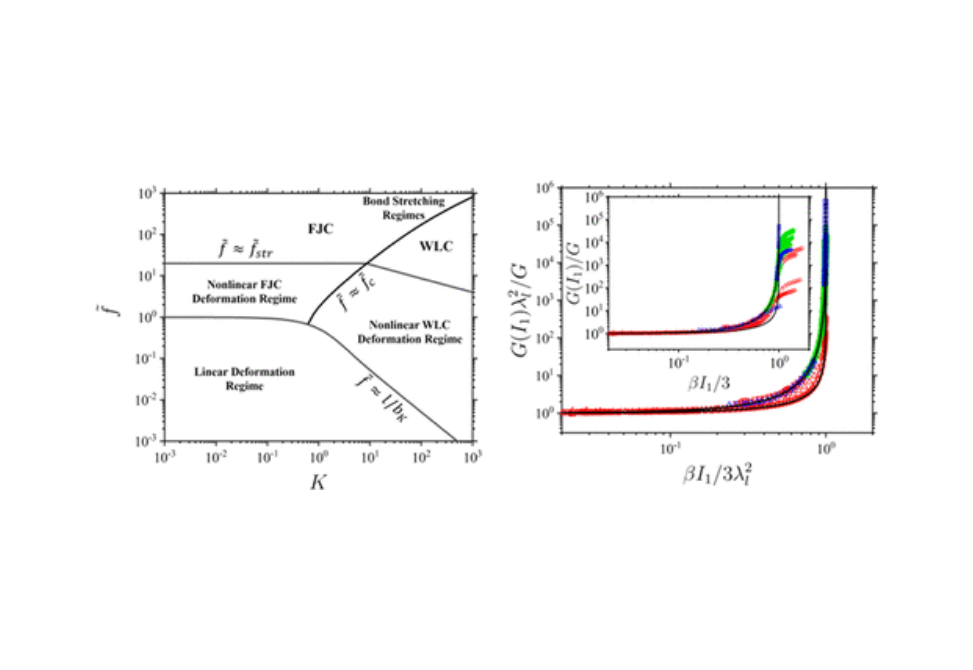Deformation Model of Chains and Networks with Extendable Bonds
Abstract
The nonlinear stress–strain response of synthetic and biological networks and gels manifested in a monotonic increase of an instantaneous modulus is a result of the nonlinear deformation of individual network strands. To describe this behavior, we develop a nonlinear network deformation model, which relates macroscopic stress–strain response with force-elongation behavior of polymer chains with bending rigidity and extendable bonds. In particular, network mechanical properties such as structural shear modulus, extensibility ratio, and bond deformation modulus are expressed in terms of chain bending constant, Kuhn length, bond elastic constant, and chain sizes in undeformed and fully extended states. The chain deformation model is tested by molecular dynamics simulations of deformation of coarse-grained chains with harmonic and finitely extensible nonlinear elastic (FENE) bonds and is applied to analyze the DNA deformation data. The network model predictions are confirmed by molecular dynamics simulations of diamond networks made of coarse-grained chains and are used to describe experimental data for biological networks of collagen, fibrin, and neurofilaments.
Citation
Deformation Model of Chains and Networks with Extendable Bonds
Michael Jacobs and Andrey V. Dobrynin
Macromolecules 2020 53 (24), 10874-10881
DOI: 10.1021/acs.macromol.0c02114


